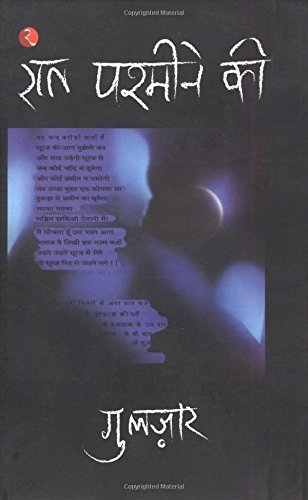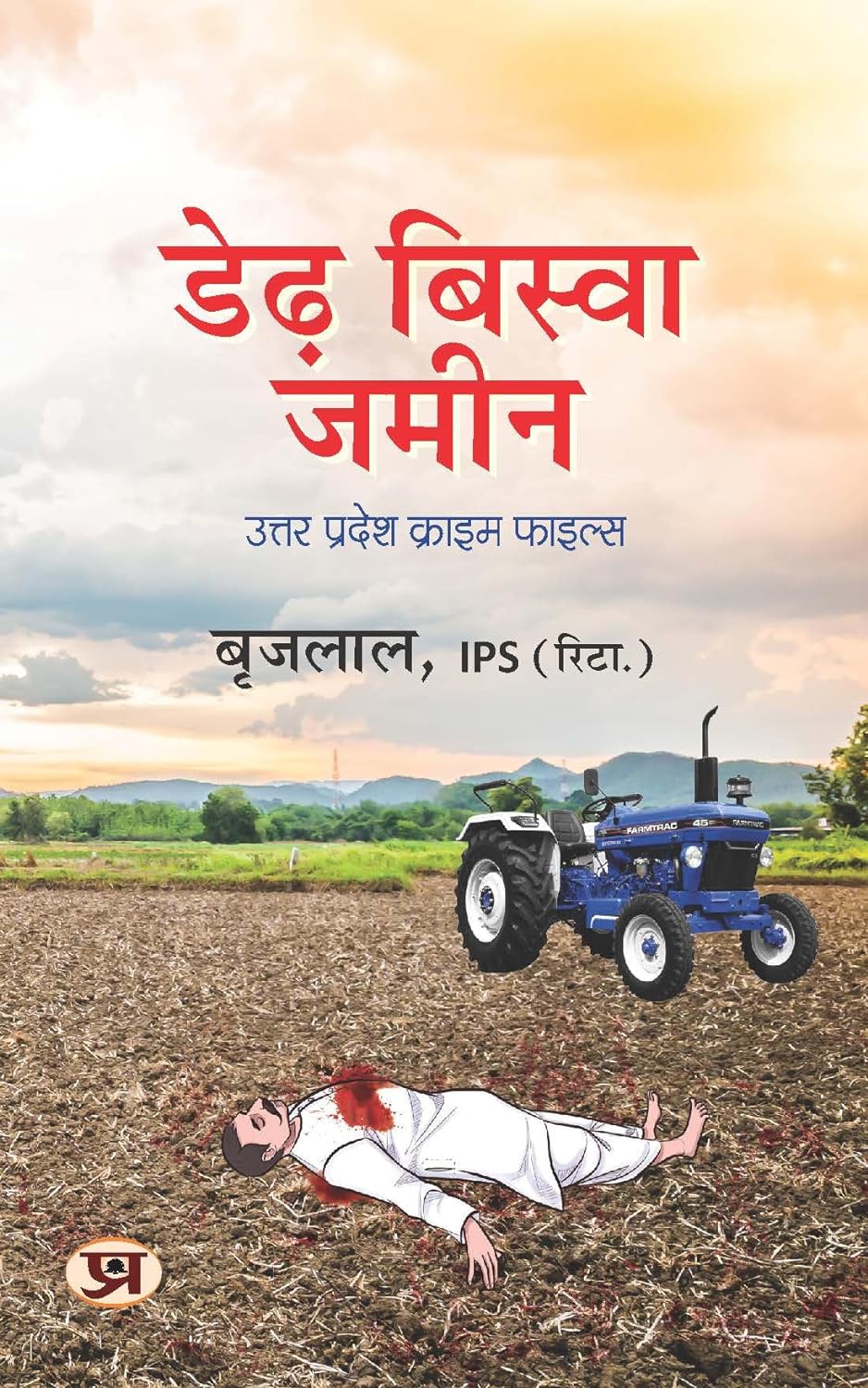
Gitanjali
Moving, heart-felt prose poems by the beloved and much admired Bengali poet and mystic who first achieved international fame (and a Nobel Prize) in 1913 with his translation of these moving poems. Reminiscent of Blake and Gibran, they include many works that are almost biblical in their rhythms, phrasing and images. A collection of over one hundred inspirational poems, Gitanjali covers the breadth of life's experiences, from the quite pleasure of observing children at play to man's struggle with his god.
BEST DEALS
About the Author
Rabindranath Tagore (1861-1941) was the youngest son of Debendranath Tagore, a leader of the Brahmo Samaj. He was educated at home and although at seventeen he was sent to England for formal schooling, he did not finish his studies there. In his mature years, in addition to his many-sided literary activities, he managed the family estates, a project which brought him into close touch with common humanity and increased his interest in social reforms. He also started an experimental school at Shantiniketan where he tried his Upanishadic ideals of education.
From time to time he participated in the Indian nationalist movement, though in his own non-sentimental and visionary way; and Gandhi, the political father of modern India, was his devoted friend. Tagore was knighted by the ruling British Government in 1915, but within a few years he resigned the honour as a protest against British policies in India. Tagore had early success as a writer in his native Bengal. With his translations of some of his poems he became rapidly known in the West. In fact, his fame attained a luminous height, taking him across continents on lecture tours and tours of friendship.
For the world he became the voice of India's spiritual heritage; and for India, especially for Bengal, he became a great living institution. Although, Tagore wrote successfully in all literary genres, he was first of all a poet. Among his fifty and odd volumes of poetry are Manasi (1890) {The Ideal One}, Sonar Tari (1894) {The Golden Boat}, Gitanjali (1910) {Song Offerings}, Gitimalya (1914) {Wreath of Songs}, and Balaka (1916) {The Flight of Cranes}. The English renderings of his poetry, which include The Gardener (1913), Fruit-Gathering (1916), and The Fugitive (1921), do not generally correspond to particular volumes in the original Bengali; and in spite of its title, Gitanjali: Song Offerings (1912), the most acclaimed of them, contains poems from other works besides its namesake.
Tagore’s major plays are Raja (1910) {The King of the Dark Chamber}, Dakghar (1912) {The Post Office}, Achalayatan (1912) {The Immovable}, Muktadhara (1922) {The Waterfall}, and Raktakaravi (1926) {Red Oleanders}. He is the author of several volumes of short stories and a number of novels, among them Gora (1910), Ghare-Baire (1916) {The Home and the World}, and Yogayog (1929) {Crosscurrents}. Besides these, he wrote musical dramas, dance dramas, essays of all types, travel diaries, and two autobiographies, one in his middle years and the other shortly before his death in 1941. Tagore also left numerous drawings and paintings, and songs for which he wrote the music himself.
Read Sample
Chapter 1
Thou hast made me endless, such is thy pleasure. This frail vessel thou emptiest again and again, and fillest it ever with fresh life.
This little flute of a reed thou hast carried over hills and dales, and hast breathed through it melodies eternally new.
At the immortal touch of thy hands my little heart loses its limits in joy and gives birth to utterance ineffable.
Thy infinite gifts come to me only on these very small hands of mine. Ages pass, and still thou pourest, and still there is room to fill.
Chapter 2
When thou commandest me to sing, it seems that my heart would break with pride; and I look to thy face, and tears come to my eyes.
All that is harsh and dissonant in my life melts into one sweet harmony – and my adoration spreads wings like a glad bird on its flight across the sea.
I know thou takest pleasure in my singing. I know that only as a singer I come before thy presence.
I touch by the edge of the far-spreading wing of my song thy feet which I could never aspire to reach.
Drunk with the joy of singing I forget myself and call thee friend who art my lord.
Chapter 3
I know not how thou singest, my master! I ever listen in silent amazement.
The light of thy music illumines the world. The life breath of thy music runs from sky to sky. The holy stream of thy music breaks through all stony obstacles and rushes on.
My heart longs to join in thy song, but vainly struggles for a voice. I would speak, but speech breaks not into song, and I cry out baffled. Ah, thou hast made my heart captive in the endless meshes of thy music, my master!
Chapter 4
Life of my life, I shall ever try to keep my body pure, knowing that thy living touch is upon all my limbs.
I shall ever try to keep all untruths out from my thoughts, knowing that thou art that truth which has kindled the light of reason in my mind.
I shall ever try to drive all evils away from my heart and keep my love in flower, knowing that thou hast thy seat in the inmost shrine of my heart.
And it shall be my endeavour to reveal thee in my actions, knowing it is thy power gives me strength to act.
Chapter 5
I ask for a moment’s indulgence to sit by thy side. The works that I have in hand I will finish afterwards.
Away from the sight of thy face my heart knows no rest nor respite, and my work becomes an endless toil in a shoreless sea of toil.
To-day the summer has come at my window with its sighs and murmurs; and the bees are plying their minstrely at the court of the flowering grove.
Now it is time to sit quiet, face to face with thee, and to sing dedication of life in this silent and overflowing leisure.
Chapter 6
Pluck this little flower and take it. Delay not! I fear lest it droop and drop into the dust.
It may not find a place in thy garland, but honour it with a touch of pain from thy hand and pluck it. I fear lest the day end before I am aware, and the time of offering go by.
Though its colour be not deep and its smell be faint, use this flower in thy service and pluck it while there is time.
Chapter 7
My song has put off her adornments. She has no pride of dress and decoration. Ornaments would mar our union; they would come between thee and me; their jingling would drown thy whispers.
My poet’s vanity dies in shame before thy sight. O master poet, I have sat down at thy feet. Only let me make my life simple and straight, like a flute of reed for thee to fill with music.
Chapter 8
The child, who is decked with prince’s robes and who has jewelled chains round his neck loses all pleasure in his play; his dress hampers him at every step.
In fear that it may be frayed, or stained with dust he keeps himself from the world, and is afraid even to move.
Mother, it is no gain, thy bondage of finery, if it keep one shut off from the healthful dust of the earth, if it rob one of the right of entrance to the great fair of common human life.
Chapter 9
O fool, to try to carry thyself upon thy own shoulders! O beggar, to come to beg at thy own door!
Leave all thy burdens on his hands who can bear all, and never look behind in regret.
Thy desire at once puts out the light from the lamp it touches with its breath. It is unholy – take not thy gifts through its unclean hands. Accept only what is offered by sacred love.
Chapter 10
Here is thy footstool and there rest thy feet where live the poorest, and lowliest, and lost.
When I try to bow to thee, my obeisance cannot reach down to the depth where thy feet rest among the poorest, and lowliest, and lost.
Pride can never approach to where thou walkest in the clothes of the humble among the poorest, and lowliest, and lost.
My heart can never find its way to where thou keepest company with the companionless among the poorest, the lowliest, and the lost.
Chapter 11
Leave this chanting and singing and telling of beads! Whom dost thou worship in this lonely dark corner of a temple with doors all shut? Open thine eyes and see thy God is not before thee!
He is there where the tiller is tilling the hard ground and where the pathmaker is breaking stones. He is with them in sun and in shower, and his garment is covered with dust. Put off thy holy mantle and even like him come down on the dusty soil!
Deliverance? Where is this deliverance to be found? Our master himself has joyfully taken upon him the bonds of creation; he is bound with us all for ever.
Come out of thy meditations and leave aside thy flowers and incense! What harm is there is thy clothes become tattered and stained? Meet him and stand by him in toil and in sweat of thy brow.
Chapter 12
The time that my journey takes is long and the way of it long.
I came out on the chariot of the first gleam of light, and pursued my voyage through the wildernesses of worlds leaving my track on many a star and planet.
It is the most distant course that comes nearest to thyself, and that training is the most intricate which leads to the utter simplicity of a tune.
The traveller has to knock at every alien door to come to his own, and one has to wander through all the outer worlds to reach the innermost shrine at the end.
My eyes strayed far and wide before I shut them and said, “Here art thou!”
The question and the cry, “Oh, where?” melt into tears of a thousand streams and deluge the world with the flood of the assurance, “I am!”
Chapter 13
The song that I came to sing remains unsung to this day.
I have spent my days in stringing and in unstringing my instrument.
The time has not come true, the words have not been rightly set; only there is the agony of wishing in my heart.
The blossom has not opened; only the wind is sighing by.
I have not seen his face, nor have I listened to his voice; only I have heard his gentle footsteps from the road before my house.
The livelong day has passed in spreading his seat on the floor; but the lamp has not been lit and I cannot ask him into my house.
I live in the hope of meeting with him; but this meeting is not yet.
Chapter 14
My desires are many and my cry is pitiful, but ever didst thou save me by hard refusals; and this strong mercy has been wrought into my life through and through.
Day by day thou art making me worthy of the simple, great gifts that thou gavest to me unasked – this sky and the light, this body and the life and the mind – saving me from perils of overmuch desire.
There are times when I languidly linger and times when I awaken and hurry in search of my goal; but cruelly thou hidest thyself from before me.
Day by day thou art making me worthy of thy full acceptance by refusing me ever and anon, saving me from perils of weak, uncertain desire.
Chapter 15
I am here to sing thee songs. In this hall of thine I have a corner seat.
In thy world I have no work to do; my useless life can only break out in tunes without a purpose.
When the hour strikes for thy silent worship at the dark temple of midnight, command me, my master, to stand before thee to sing.
When in the morning air the golden harp is tuned honour me, commanding my presence.
Chapter 16
I have had my invitation to this world’s festival, and thus my life has been blessed. My eyes have seen and my ears have heard.
It was my part at this feast to play upon my instrument, and I have done all I could.
Now, I ask, has the time come at last when I may go in and see thy face and offer thee my silent salutation?
Chapter 17
I am only waiting for love to give myself up at last into his hands. That is why it is so late and why I have been guilty of such omissions.
They come with their laws and their codes to bind me fast; but I evade them ever, for I am only waiting for love to give myself up at last into his hands.
People blame me and call me heedless; I doubt not they are right in their blame.
The market day is over and work is all done for the busy. Those who came to call me in vain have gone back in anger. I am only waiting for love to give myself up at last into his hands.
Chapter 18
Clouds heap upon clouds and it darkens. Ah, love, why dost thou let me wait outside at the door all alone?
In the busy moments of the noontide work I am with the crowd, but on this dark lonely day it is only for thee that I hope.
If thou showest me not thy face, if thou leavest me wholly aside, I know not how I am to pass these long, rainy hours.
I keep gazing on the far-away gloom of the sky, and my heart wanders wailing with the restless wind.
Chapter 19
If thou speakest not I will fill my heart with thy silence and endure it. I will keep still and wait like the night with starry vigil and its head bent low with patience.
The morning will surely come, the darkness will vanish, and thy voice pour down in golden streams breaking through the sky.
Then thy words will take wing in songs from every one of my birds’ nests, and thy melodies will break forth in flowers in all my forest groves.
Chapter 20
On the day when the lotus bloomed, alas, my mind was straying, and I knew it not. My basket was empty and the flower remained unheeded.
Only now and again a sadness fell upon me, and I started up from my dream and felt a sweet trace of a strange fragrance in the south wind.
That vague sweetness made my heart ache with longing and it seemed to me that it was the eager breath of the summer seeking for its completion.
I knew not then that it was so near, that it was mine, and that this perfect sweetness had blossomed in the depth of my own heart.












